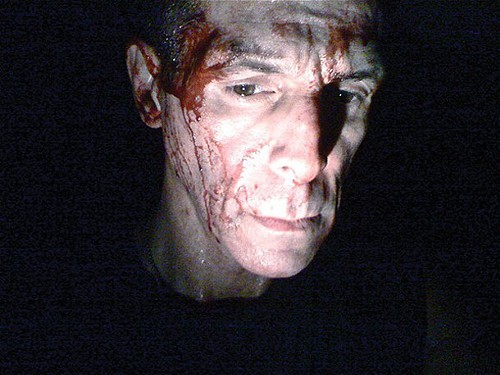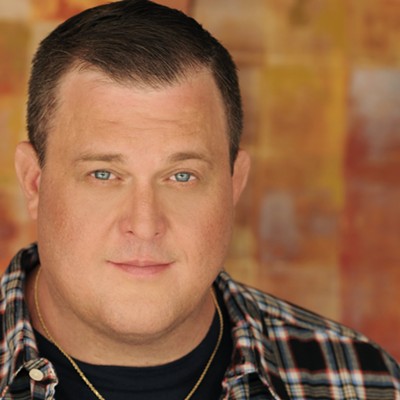Wednesday, October 23, 2013
Measure Back at the Festival of Firsts
This interactive theater work wants to make us ask some provocative questions about war, and it largely succeeds.
The work, which put the audience in the role of combatants or potential combatants, was as oblique in its storytelling as it was confrontational in its methods. But it does pose an interesing theory about warfare — one that, perhaps unexpectedly, has to do with warfare’s relationship to acting.
Measure Back, co-directed by T. Ryder Smith and acclaimed Brooklyn-based theater-maker Christopher McElroen, is a world premiere at the Pittsburgh International Festival of Firsts. It's staged on the top floor of Downtown’s Baum Building (above Space gallery). The venue is a large, bare, long-unused room where the audience of 40 or so began the evening sitting on cinderblocks. A bank of television monitors sat upstage, showing an array of sequences from nature films, surgery films, Hollywood war movies and sometimes infomercials.
The three-member cast is headed by Smith, a lean and sardonic fellow who led with a lengthy, amusing monologue. The talk was loosely about war — his father and grandfather were in the service — but was frequently interrupted by calls to his cell phone, purportedly about casting opportunities for Smith himself.
However, about halfway into the two-hour show, the scenario began gradually to transform from this engaging setup into a nightmarish, nonlinear war story, from train-up to an invasion/occupation sequence in which Smith was joined by two young actresses portraying residents of the invaded country.
The evening’s keynote motif was an extended riff on The Iliad, our oldest literary epic about war. Along the way — and as Smith shifted in and out of various personas — audience members were conscripted to be Greek gods, fellow soldiers or even just people asked to memorize a single word. Much of the second half, moreover, took place in a menacing near-dark, with flashlights and other small onstage lights the lone illumination.
Measure Back is not “anti-war” in the usual sense. Smith and McElroen, longtime collaborators who devised this work together, want us to ponder what impulses lead us toward war — and maybe to feel some of them ourselves.
Meanwhile, the work’s female characters — a motif of veiling suggests Iraq, Afghanistan — told of oppression that one might wish to go to war to oppose. Yet the play also explored the links between misogyny and violence; one clever, Carlinesque sequence deconstructed the English slang conventions that make it a compliment to call a woman “dude,” but an insult to call her the name of a female dog.
That thread came to a point with running commentary on Helen of Troy as the supposed cause of the Trojan War. “I think Helen was just the story they told,” Smith said. “They wanted Troy.”
But the link between the practice of acting and the making of war goes beyond the Hollywood Helens flickering on those monitors, and even beyond Smith’s rips on the acting profession. Much of the audience interaction, for instance, was built around brief interactions in which Smith affixes blame or demands loyalty to his cause, forcing audience members into false choices, and demanding that people make snap, life-or-death decisions in the madness of a moment, sometimes, while literally in the dark.
Though it feels a bit longer than necessary, Measure Back is bound to provoke discussions about its meaning and intent. What it suggested to me is that, as if we were all unconsciously actors, we humans tend to play the roles expected of us. And if we are expected to engage in, or support warfare, we too often will.
Measure Back has four more performances, 8 p.m. nightly through Saturday. Tickets are $25.
Tags: Measure Back , T. Ryder Smith , Christopher McElroen , Pittsburgh International Festival of Firsts , Program Notes , Image













